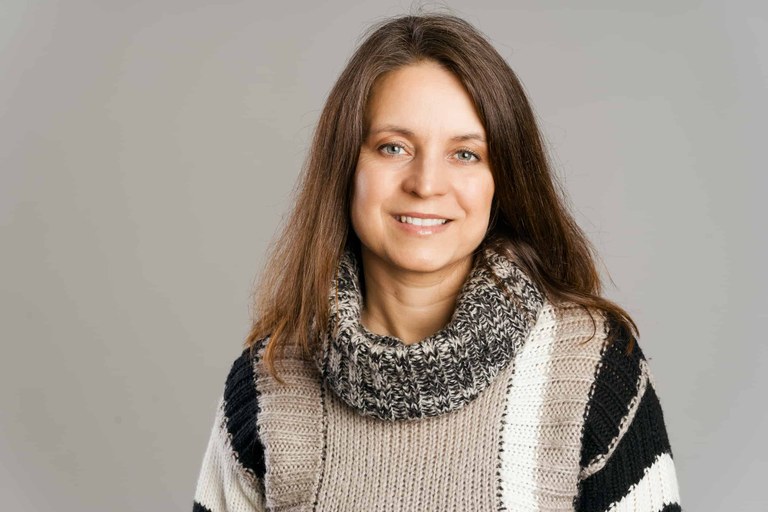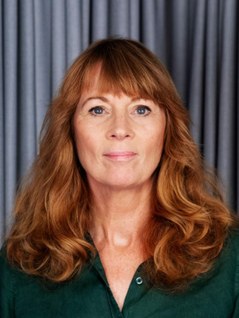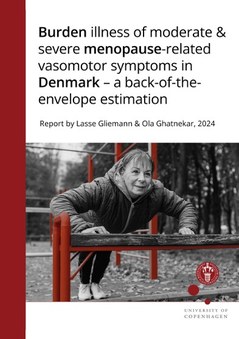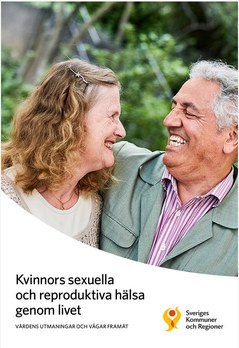Menopause initiative saves millions in sick leave costs for Swedish municipality
The traditional phase which sooner or later affects nearly half of the Nordic workforce has long been viewed as a women’s issue. New initiatives are about to change that.
Private businesses in Denmark are offered lectures and Partille municipality in western Sweden has made permanent a wellness programme which has benefitted both women and the economy.
For a long time, menopause has been a taboo subject in the Nordics that only women spoke about amongst themselves.
The exception is Iceland, where the Association on Women‘s Menopause was established back in 2013. The NGO is presented on the Icelandic government’s website.
However, interest and discussions about this transitional phase for middle-aged women have increased significantly in the other Nordic countries. Reports, analyses, online seminars, articles and social media posts about menopause are becoming more frequent, although it can still be a challenge for women to receive adequate care.
The Nordic Labour Journal has examined Denmark and Sweden to focus on initiatives that might reduce sick leave among women with menopausal challenges and, in turn, make things easier for both individuals and employers.
No longer a private problem
“Menopause issues have long been a private issue, but when it affects people’s ability to work it is no longer a private problem but a societal one,” Stine Mathieu tells the Nordic Labour Journal.
She is a trained guide in natural hormone therapy, based in Copenhagen, and every day she meets women with different symptoms caused by menopause.

Stine Mathieu trained as a journalist. She later trained to become a natural hormone therapist and practices holistically. Today, as a partner in the company *Hormoner på Arbejde ApS* ("Hormones at Work Ltd."), she works on creating menopause-friendly frameworks in workplaces. Photo: stinemathieu.dk.
Together with her sister Maja Aagaard, Stine founded “Hormoner på arbejde” (Hormones at work) in 2022, which offers guidance on how workplaces can become menopause-friendly. On their website, they write about “creating a framework and work environment where there is room for your skilled employees in all phases of life”.
“Symptoms vary but all women can be affected, experiencing sweating, incontinence, sudden tears, sleep problems or other symptoms.
“It’s part of our female biology and sometimes women who are on the verge of reaching their career peak are held back when they enter menopause. It’s both humiliating and a loss for the business,” says Sine Mathieu.
Identifying shortcomings
How menopause affects women varies according to different statistics. One estimate suggests one-third of women notice nothing, one-third have symptoms but can work and one-third have symptoms that are so severe that they are unable to perform their regular work.
Another estimate says 25 per cent of women in menopause experience no symptoms, 50 per cent suffer mild discomfort and 25 per cent suffer severe symptoms.
Whether the percentage of women who struggle to perform their work is 25 or 33 per cent, the size of this issue is obvious. Despite this, it was not until 2023 that the Swedish parliament adopted a motion to “…review the possibility of conducting more equal and improved menopausal care”. The motivation was:
“Sweden’s menopausal care is neither equal, accessible or sufficient. Surveys show that the treatment offered to women varies greatly across the country and that hormone treatment is primarily prescribed in larger cities.”
Also, referencing the Swedish National Board of Health and Welfare's survey from 2021, it was stated that there is "a need for both improved information and guidance for women in menopause, as well as national support for the health sector to help it offer advice, support, and treatment. Women in or approaching menopause need access to high-quality care, regardless of where in the country they live or their prior knowledge.”
The Swedish Association of Local Authorities and Regions, SKR, has also reported shortcomings in how women in menopause are treated. In their 2022 report “Women’s sexual and reproductive health throughout life”, their write:
“Women want to and can benefit from more information about menopause. Many experience a lack of knowledge about menopause and about how the symptoms can be alleviated.”
Stine Mathieu sees similar gaps and a need for knowledge in Denmark. Through her business, she and her sister meet many women in menopause who have had to take responsibility for their health on their own.
“The women talk to their HR department, and go to see their GP, their physio and their gynaecologist without being offered active treatment. Who you meet and what treatment you’re offered is coincidental.
“So many women create their own online communities to ask what other people do. Others do their own research and then ask their doctor to order the hormone treatment they want,” she says.
The Swedish National Board of Health and Welfare is currently working on national guidelines for menopausal care. These include recommendations primarily aimed at decision-makers and healthcare workers. The publication date is set for the autumn of 2025.
The benefits of information
“Hormones at work” have given lectures at several of Denmark’s largest trade unions to spread information about what menopause is and which preventative measures might be needed in the workplace.
As a result, there are now campaigns aimed at securing women the right to a so-called menopause conversation in their employment contracts, explains Stine Mathieu.
But even if menopause has become a more accepted topic of conversation, Stine Mathieu and her sister are met with resistance when they offer Danish businesses lectures and workshops.
“Some become upset, arguing that if we focus on menopause challenges we ruin women’s opportunities – that no employer will hire women over 45.”
That is an argument that the two consultants have no problem countering.
“Capitalist countries like the USA, Canada, New Zealand and Australia have been working with menopause challenges for several years and have realised it would be more expensive not to. They don’t want higher rates of sick leave or risk losing their staff, and see people as labour and not as an expense,” says Stine Mathieu.
There is also domestic research on this issue. Lasse Gliemann and Ola Ghatnekar at the University of Copenhagen have produced a report detailing the loss of production related to menopause. They estimate the annual production loss to be between 3.6 to 4.3 billion Danish kroner (€482.6m to €576.5m) with an average productivity loss of 12.2 per cent per person per year.
Municipal project made permanent
Partille municipality has just over 40,000 inhabitants and lies around 10 kilometres north-east of Gothenburg. Kristina Svensson is the municipality’s head of culture and leisure.
 “When I was 47, I had severe symptoms. I became anxious and experienced a personality change that I couldn’t understand. After several visits to healthcare providers, I was finally told I had entered menopause and could get help,” she tells the Nordic Labour Journal.
“When I was 47, I had severe symptoms. I became anxious and experienced a personality change that I couldn’t understand. After several visits to healthcare providers, I was finally told I had entered menopause and could get help,” she tells the Nordic Labour Journal.
Kristina Svensson contacted the chair of the municipal board Marith Hesse, and the wellness initiative for municipal employees focusing on menopause began to take shape. The aim was to provide managers with more knowledge and offer support to affected women. The initiative consisted of four parts:
- Training for municipal management.
- Lectures at the workplace for female staff aged 40 to 60 providing basic information about what menopause is and might entail.
- Access to personalised menopause counselling with a specialist nurse.
- Fast-track guidance to healthcare services for those wanting that.
“We needed more knowledge before we could see that more women than men were off sick. Many of our women were also on long-term sick leave due to pain or depression,” says Kristina Svensson.
Saving over three million
When the menopause initiative was evaluated, it turned out that sick leave among female employees aged 40 to 60 fell by one percentage point. This saved both the state and municipality money.
“The municipality has saved over three million Swedish kronor (€260,000)*. The total saving for society is double, since the cost of sick pay after day 14 is covered by the national Swedish Social Insurance Agency, Försäkringskassan."
The municipality has not yet evaluated the factors that led to the fall in sick leave, but Kristina Svensson thinks that it might be a combination of increased knowledge, reduced fear and anxiety of being seriously ill and the awareness that the boss also understands the situation.
“This can make it easier to endure the symptoms and know that you are not alone but going through this together,” she says and adds:
“And of course, the opportunity to receive advice from a specialist nurse in a calm setting and quickly access hormone therapy is something that reduces sick leave.”
Grassroots movement
The initiative has been made permanent in Partille and has spread to other municipalities. There is now more pressure on healthcare centres around Sweden to educate staff on menopause issues.
“What we see most clearly here in our municipality is an attitude change. People now naturally discuss menopause in the workplace. Our project seems to have been a door-opener and is also spreading from person to person,” says Kristina Svensson.
To share Partille’s good examples nationally, Marith Hesse participated this autumn at a seminar in the Swedish parliament about menopause alongside doctors, researchers and politicians.
*CALCULATION BY PARTILLE MUNICIPALITY ECONOMY UNIT
"We calculated the cost for employees in the target group, which includes the average salary + social security contributions x the number of employees in the target group.
The sick leave decreased by one percentage point within this group, resulting in a cost saving of 7 million SEK.
Regardless of whether substitutes cover for the sick employee, the value of having people working rather than on sick leave is 7 million SEK.
Since the municipality covers sick pay only from day 2 to day 14, and long-term sick leave (absence exceeding 60 days) in Partille accounts for approximately 45 per cent, we estimated that the municipality's cost savings are about half of this, i.e. 3.5 million SEK."
- Estrogen Levels Over a Lifetime
-
The image above illustrates how Feminea Lab represents changes in estrogen levels in women over a lifetime. The company describes itself as "a leading player in women's health, offering scientifically-based health tests and premium services for women."
- Danish report on menopause challenges
-
According to the report, the production loss in Denmark due to menopause-related issues amounts to between 3.6 and 4.3 billion Danish kroner per year.
- SKR's report on menopause
-
According to SKR (the Swedish Association of Local Authorities and Regions), many people experience a lack of knowledge about menopause and how its symptoms can be alleviated.


 Follow us on Facebook
Follow us on Facebook
